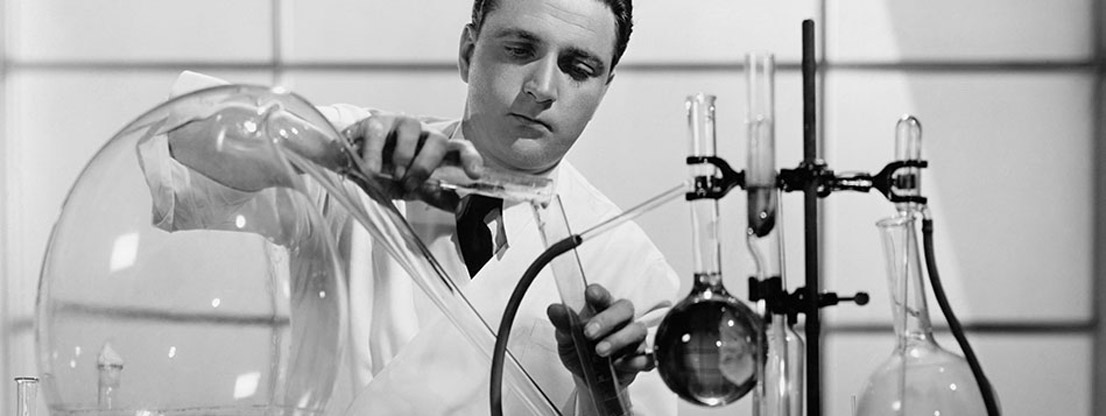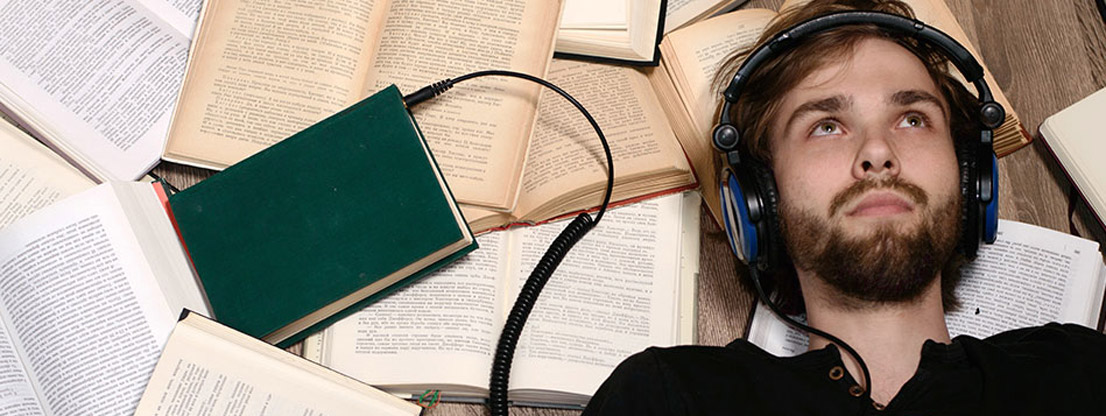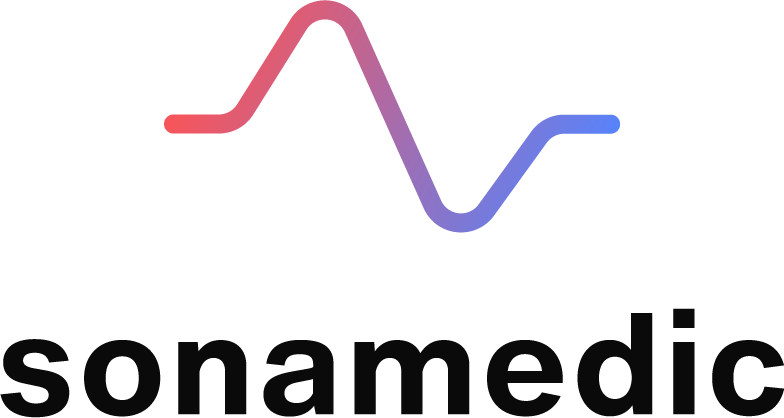Concentration in the age of information: these tips help
Concentration has become a particularly important topic for each and every one of us, especially in a time of stimulus and information overload. Because: without concentration, we can neither make productive nor creative progress in our work. After all, the ability to concentrate on a single thing is essential for everything creative! But how exactly do I concentrate on one thing? How can I focus? What exactly is concentration anyway? Which things are beneficial to it? In this article you will find some answers to these questions.
Less is more – more concentration
In this text, your sonamedic team not only brings you up to date on the current state of research, but also shows you concretely how you can achieve more focus in your everyday life. Come on, dive with us into the exciting topic of concentration!
1. Know your limits: react to your personal signals
Every person is different and unique. It is important that you know your limits and can react accordingly – preventively – to your personal signals. So if you notice that everything becomes too much for you and you can no longer set the focus adequately, it is time to use suitable and proven techniques. Don’t worry, it is not difficult. Because all concentration techniques have to do with relaxation and are fun!
Sensory overload on all channels?
We live in an age of sensory overload: computers, mobile phones, the internet, the world is fast, moving and full of images. Therefore it is important to be centred and sometimes not to consume things. But how exactly do you manage to put this good advice into practice? Many experts from various disciplines such as psychology and media research are studying the effects of digital communication on our life and well-being [1]
2. Try a “digital diet” (Digital Detox)
What’s too much is too much: e-mails, SMS, WhatsApp, Facebook and Co take their toll, eat up time and attention. One answer can be a “digital diet” for a certain period of time. This can mean, for example, not using WhatsApp for a fortnight or answering e-mails only occasionally. You have to decide: What has priority for you? [2]
Which factors are important for my ability to concentrate?
Various factors promote your concentration and focus – others weaken your attention. Concentration is a tense state that is often achieved through previous relaxation. It is characterised by the fact that you can get involved in a very specific topic and the shreds of thoughts do not buzz around in your head like crazy. If you are concentrated, you will not be distracted by anything! But how do you generate this mental peace?
3. Soft measures to promote concentration
Gentle measures can have a positive effect on your ability to concentrate. Here are a few useful tips to increase your attention in a relaxed way:
Powernapping, or in English: The good old midday nap
The so-called power napping is a short sleep during the day, which should last between 10 to 30 minutes. And this little nap is an incredible refresher and concentration booster! You are more relaxed, more concentrated, have less appetite, reduce the risk of a heart attack and increase serotonin levels. Studies even show that a nap in the afternoon can significantly improve your memory. So just find a quiet corner, put a pillow under your head and off you go! The downside: Unfortunately, power napping is not yet really recognised as a performance-enhancing technique in the minds of top executives, although science has clearly proven its numerous benefits [3].
4. Increase concentration through healthy nutrition
Our diet also affects our ability to concentrate. The motto here is: Rely on food that is good for your brain! These include unsaturated fatty acids and vitamins in particular. It is not without reason that the so-called trail mix consists of nuts and dried fruits. If you are at a low point and need quick energy, a piece of dextrose can also give you a concentration kick. However, long-chain carbohydrates in the form of wholegrain products are better, as they provide the brain with more sustained energy [4].
Relaxing and balancing activities
To prevent chronic stress, we need a balanced mixture of tension and relaxation in our lives. Exercise, fresh air, massages and meditation promote your balance and thus your ability to concentrate. Here is an overview of gentle methods that you can easily integrate into your everyday life.
5. More concentration through moderate sport
Moderate sport and mindful physical exercises such as progressive muscle relaxation make us more balanced. If we exercise regularly, we are more tired in the evening than after days when we were only mentally challenged. Our thinking machinery relaxes more easily and we fall asleep better.
Yoga and Pilates for body and mind
Yoga and Pilates are not only physical activities, but also promote a mindful and attentive approach to your body. You cultivate stability, balance, elasticity and flexibility. A basic assumption of yoga is that exactly these qualities are transferred to your mind.
Walks and exercise
Get out of your own four walls and see more: Fresh air, exercise, sun, wind, people, flowers, water, playing dogs… A walk opens up our inner space and opens our eyes to the world we are connected to. Gentle movement stimulates our blood circulation, and nature really fills us up. And: If you exercise outdoors, you can fall asleep better in the evening!
Wellness
Use the wonderful world of wellness for yourself: Hot infusions in the sauna let us flush out everything that is not good for us, also in the figurative sense. Aromatic scents, from mountain pine to sandalwood, intensify the desired effect of letting go. Hot and cold alternating baths strengthen our immune system and give us vitality. Gentle steam bathing lets us slowly raise our core temperature. And a massage with natural, fragrant oils releases blockages and allows us to relax deeply. Why not enjoy a wellness evening once a week with your partner or friends in the sauna temple of your choice? It is worth it!
6. What science say

Many studies deal with the topic of concentration. Incidentally, people have been aware of the problems of focusing appropriately not only since the digital age – it has probably always been a challenge to focus one’s attention optimally. But don’t worry: The moment you notice that you are inattentive, you will bring some focus back into your here and now! You generate mindfulness, observe yourself – and already have the choice again to decide what you want to focus your attention on.
Simple mental concentration exercise for better self-management
Pick something you are currently working on or choose an activity in which you are involved. Now concentrate fully on what you are doing! It doesn’t matter whether it is a leisure activity or a professional task, whether you are working alone or with others. At some point in the course of what you are doing, your concentration drops and you become distracted. But as soon as you notice that you are drifting away, you are already more present! At that moment you can consciously return to what you originally concentrated on. In this circular process, psychological-clinical research distinguishes between the following four steps:
- setting focuss
- drifting off
- reawakening
- make conscious decisions and return to focus
Steps one and four are conscious steps, because you make the decision yourself. Steps two and three on the other hand are unconsciously motivated. By constantly repeating this exercise the pattern changes slowly – and you become more attentive. Your thoughts now move away from the actual subject less frequently and for a shorter time. Over time you will generally achieve a higher degree of focus. Pick a topic that you want to progress on and just try the exercise. Cooking, writing books, designing tattoos – there are no limits! [5]
Music you like activates your alpha brain waves

Classical music puts the human brain into the right vibration! Various studies have come to the conclusion that nervous and overstimulated people who listen to classical western music become more relaxed and calm. The proportion of alpha waves in the brain increases in the listener – and it is precisely these vibrations that are responsible for feelings such as relaxation! But other types of music can also have a positive effect on concentration and performance, because music in general influences the autonomic nervous system, causes psychological changes and can change behaviour patterns. This probably also explains why people are more productive when they listen to their favourite music. [6]
Professional recommendations for focused work
Of course it is also important in the professional context that people can work in a concentrated – and thus productive – way. However, especially in times of digital distraction, it is increasingly difficult for us to stay with one thing for long periods of time.
How do I set the right priorities?
But this is precisely what is needed to achieve objectives. Here too, priorities must be set: What is important in the long term and takes a lot of time? What is distraction, trivial and unimportant? With the right answers to these questions you can increase your effectiveness. And if you are effective, you will also achieve your goals [5].
Define your activities in categories:
- important activities
- important activities without time pressure
- activities that appear urgent but are actually unimportant
- unimportant activities
Organize yourself!
Category 1 is self-explanatory and includes everything that is important and is under time pressure. The activities that fall under category 2 are just as important as those in category 1, but we do not feel any external pressure – such as a deadline – that pushes us to complete them quickly. There may be something like our true vocation hidden here, like writing a book or a blog.
What is important to you?
Category 3 includes activities such as checking your email too often. Tip: Bundle these activities and do them daily only within a clearly defined time window! Otherwise, deactivate notifications in the remaining time if nothing important is pending. When completing activities that fall under categories 1 and 2, do not let activities of categories 3 and 4 disturb you [7].
7) How frequency therapy can help you to concentrate
The frequency therapy of sonamedic supports you with a combination of effective relaxation methods.
We at sonamedic have developed special meditations for you that train your attention – you can find them in the “Productivity” section. Here we work with an effective mixture of different methods that make it easier for you to focus. Relaxing music calms you down, binaural beats create frequencies in your brain that gently stimulate your attention.
Positive suggestion as effective medication
Furthermore, positive suggestions anchor the inner image of your undivided attention in your subconscious. Progressive muscle relaxation exercises also create the right basis for relaxed, focused action on the physical level. All you have to do is make yourself comfortable and plug in your headphones. Our sound journeys take about ten minutes, but the effect will last much longer!
sonamedic frequency therapy – your concentration sound journeys
In our special listening experiences for more concentration, we provide you with our four-fold combination package per app. Whether you’re sitting on the train, lying in a meadow or at home on the sofa – take the short time and get yourself into the right vibration with our sound journeys. The binaural beats in the background will re-settle the electric waves of your brain. So you can easily and effectively change your state of mind in a positive and lasting way – for more energy and concentration.
And off you go – headphones on and relax
How does it work? Very easy! All you have to do is grab your smartphone and put on your headphones. Choose the right concentration sound journey and start your deep relaxation. Real listening pleasure, real effect – without risks and side effects. Your sonamedic team wishes you a relaxed everyday life full of highly concentrated activity that is fun!
Scientific sources:
(1) Schnabel, Ulrich (2011): Den Affen zähmen. In: www.zeit.de. Online (Zugriff 28. Mai 2019)
(2) Schnabel, Ulrich: Das Wesentliche im Blick. In: www.zeit.de. Online (Zugriff 23. Mai 2019)
(3) Skalli, Sami: Powernapping im Büro: Das Nickerchen für sich arbeiten lassen. In: www.zeit.de. Online (23. Mai 2019)
(4) Rentrop, Lisa: Konzentration steigern: Die beste Nahrung fürs Gehirn. In: www-de.scoyo.com. Online (Zugriff 24. Mai 2019)
(5) Lipson, Michael: Managing Yourself: To improve Your Focus, Notice How You Lose I, Harvard Business Review. 2015 HARVARD BUSINESS SCHOOL PUBLISHING CORPORATION. Online (Zugriff 23. Mai 2019)
(6) Shih, Yi-Nuo, Huang, Rong-Hwa, Chiang, Han-sun (2009): Correlation between work concentration level and background music: A pilot study. In: Work, vol. 33, no. 3, S. 329 – 333.
(7) Harper, Stephen (2014): Concentration is crucial. In: Industrial Engineer, Engineering and Management Solutaions at Work, Vol. 46, no. 8, S. 26 – 31.




